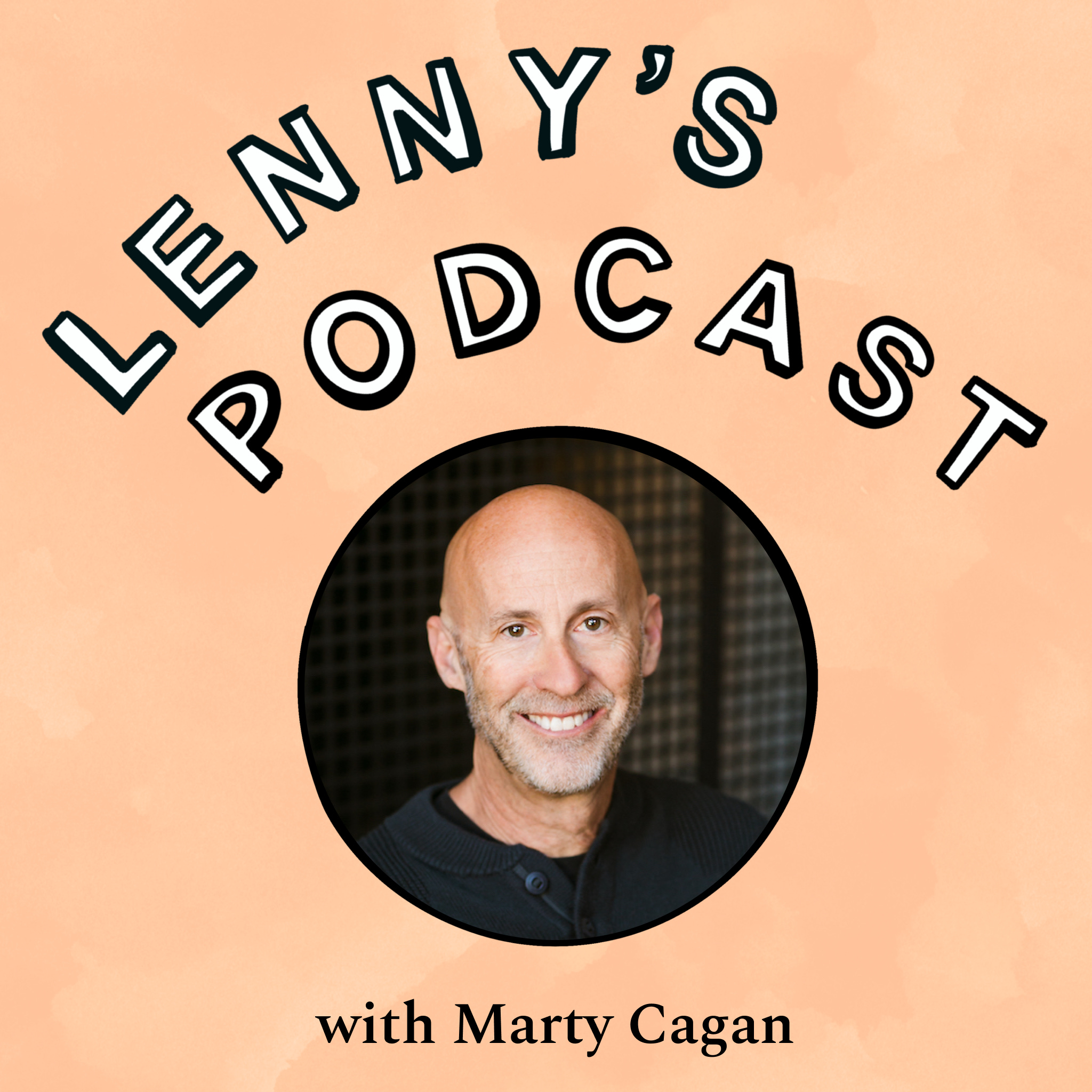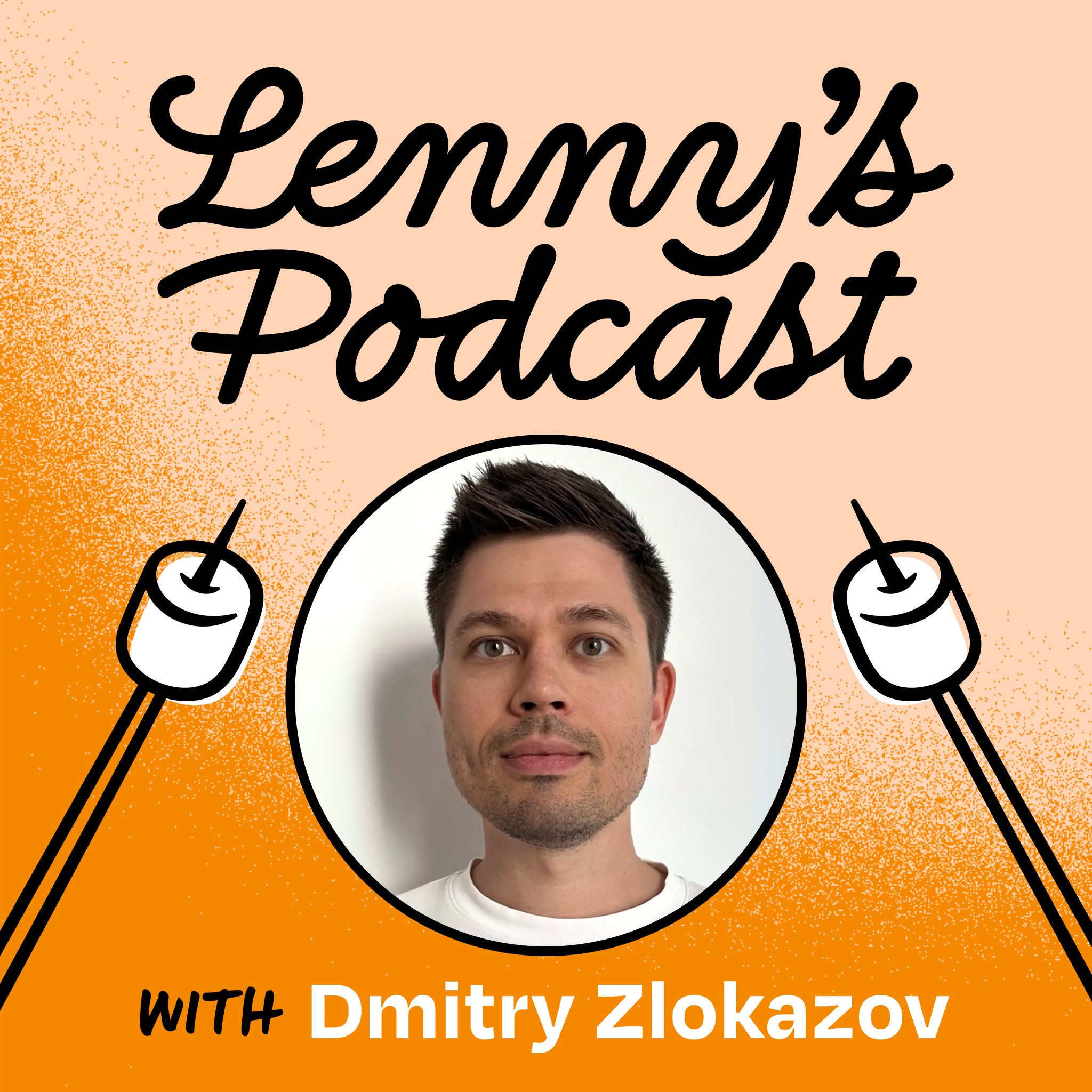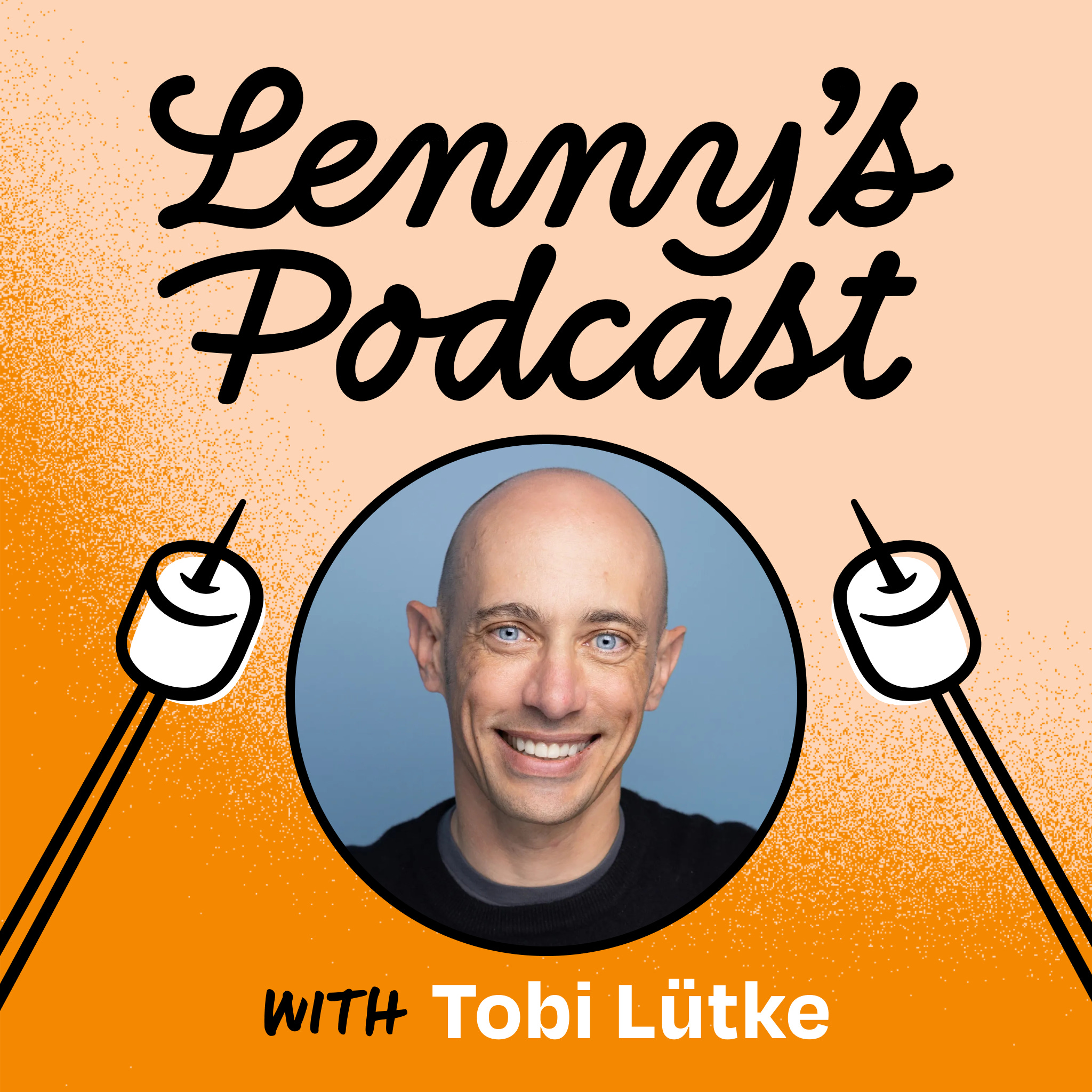
March 10, 2024 • 1hr 25min
Product management theater | Marty Cagan (Silicon Valley Product Group)
Lenny's Podcast: Product | Growth | Career

Key Takeaways
- Product management "theater" refers to companies and individuals going through the motions of product management without actually doing the real work of driving outcomes and value
- Many companies have overhired product managers and adjacent roles during the pandemic, leading to bloated teams and inefficiency
- There's a big difference between "feature teams" and "empowered product teams" - feature teams just build what they're told, while empowered teams solve real customer and business problems
- Real product management is about driving value and viability, not just managing backlogs and facilitating processes
- Many product managers need to "raise their game" and develop deeper skills around understanding customers, data, business constraints, and the market
- AI will likely disrupt many aspects of the PM role, especially more administrative tasks, making it even more important for PMs to focus on high-value strategic work
- Marty's new book "Transformed" aims to help companies adopt the "product operating model" used by the most successful tech companies
- The "product operating model" is based on 20 key principles around how to decide what to work on, how to solve problems, and how to build/ship products
- Four key competencies are needed: strong product managers, product designers, tech leads, and product leaders who can coach and develop strategy
Introduction
Marty Cagan is one of the most influential voices in product management, having worked with countless product teams over the past 20+ years and authored seminal books like "Inspired" and "Empowered". In this wide-ranging conversation with Lenny Rachitsky, Marty shares his candid thoughts on the current state of product management, including concerning trends he's seeing as well as advice for product managers and leaders looking to improve.
Marty has become increasingly outspoken recently about what he calls "product management theater" - companies and individuals going through the motions of product management without actually doing the real, difficult work of driving outcomes. He believes many companies have overhired product managers and adjacent roles, leading to bloated, inefficient teams. With economic uncertainty and the rise of AI, Marty predicts a "reckoning" for product managers who aren't providing real value.
The conversation covers the key differences between "feature teams" and truly empowered product teams, the skills product managers need to develop, how AI may disrupt the PM role, and insights from Marty's new book "Transformed" on helping companies adopt the "product operating model" used by top tech companies.
Topics Discussed
The Current State of Product Management (4:46)
Marty has become increasingly concerned about several trends converging in product management:
- Many companies overhired during the pandemic, lowering hiring bars
- Changes in the financial world have increased the cost of capital
- The predicted impact of generative AI is creating uncertainty
- Team sizes have gotten out of hand, especially outside of Silicon Valley
- Remote work has negatively impacted innovation and velocity at many companies
He believes many companies, especially large enterprises outside of tech hubs, have invested heavily in processes and roles that don't actually drive meaningful outcomes. As Marty puts it:
"I go into some companies and honestly, I can't believe all the ridiculous roles that they have now...agile coaches and product owners and product ops and business analysts and all these assistant product manager types."
This has led to a lot of waste and inefficiency compared to how the best product companies operate. Marty predicts companies will need to take a hard look at how they build products and serve customers if they want to survive.
Product Management "Theater" (12:08)
Marty has been writing about the concept of "product management theater" - companies and individuals going through the motions of product management without actually doing the real work. He believes this stems from many people being hired as product managers who aren't actually good at or trained for the real job.
As Marty explains:
"They carry this title product manager because the whole world largely thanks to you, who knows? It's cool, but they're not doing any other role and they don't have any of the skills."
He argues that in many cases, especially on "feature teams", companies don't actually need product managers because it's really just a project management role. The engineers and designers could often do it themselves without an intermediary PM slowing things down.
Feature Teams vs. Empowered Product Teams (18:33)
Marty draws a key distinction between "feature teams" and truly empowered product teams:
- Feature teams are given a roadmap of features/projects to deliver, often with specific timelines. They focus on output rather than outcomes.
- Empowered product teams are given problems to solve for customers or the business. They have autonomy to figure out the best solutions and are measured on outcomes, not just shipping features.
As Marty puts it:
"It is a lot easier to deliver output than it is to deliver outcomes. And a product team, an empowered product team, instead of being given that roadmap of features, they're given problems to solve."
He argues that only on truly empowered teams focused on outcomes do you actually need "real" product managers with deep skills around understanding customers, data, business constraints, and markets.
Skills of a Real Product Manager (24:48)
Marty outlines several key skills and responsibilities of a strong product manager on an empowered team:
- Becoming an expert on users and customers through direct interaction
- Understanding product usage data and trends
- Representing compliance, sales, marketing, financial, and legal constraints
- Deep understanding of the market
- Ability to collaborate closely with design and engineering as a "creator", not just a facilitator
He contrasts this with product owners or feature team PMs who may just be managing backlogs in Jira. As Marty says:
"On a real empowered product team, product manager is a creator, not a facilitator. I always cringe when somebody tells me, oh, my job is to say why? And I'm like, well, what do you do for the rest of the week, besides the ten minutes it takes you to say why?"
The Product Management Reckoning is Here (29:27)
Marty believes many product managers, especially those in more administrative "product owner" type roles, are vulnerable as companies realize they aren't providing as much value as expected. He predicts AI will accelerate this trend.
However, he emphasizes that product managers have more agency than they realize to improve their skills and provide more value:
"There is a lot an individual contributor...can do. They can raise their game. They can literally do a self assessment and raise the skills from a product owner or a feature team product manager to a real product manager."
Taking Control of Your Product Management Career (32:05)
Marty encourages product managers to be more proactive about developing their skills and careers rather than viewing themselves as "victims" of their company's approach. He recommends:
- Doing a self-assessment of your current skills vs. those needed for "real" product management
- Seeking out resources and learning opportunities beyond just certifications
- Understanding what kind of product manager you want to be
- Looking for ways to demonstrate more strategic value in your current role
The Challenge of Finding Reliable Product Management Advice (34:59)
Marty expresses frustration that much of the product management content and advice available online perpetuates "theater" rather than teaching real skills. He estimates 90% of content comes from the "feature team world".
This makes it challenging for aspiring product managers to find good guidance. Marty advises being more discerning and critical about sources of advice:
"You have to use your judgment. You have to think, probably the most important skill for product people...is really learning how to think critically, and that involves literally evaluating."
The Disconnect Between Good Product Companies and the Product Management Community (40:18)
Marty notes that there's often a disconnect between how the best product companies actually work and what gets discussed in product management communities online. Well-meaning people often share advice based on suboptimal practices at their own companies.
He encourages looking to learn from companies with track records of consistent innovation, not just any company calling themselves "product-led".
Top-down vs. Bottom-up Cultures (44:23)
Discussing Meta/Facebook's approach, Marty clarifies that having leadership set high-level strategy and focus areas is not the same as top-down "feature factories". Good product companies have leaders set direction while empowering teams to figure out solutions.
"Empowerment does not mean you set up this product team and they go decide what to work on. No, that would just be anarchy, right?...Instead, empowerment means the leaders do their job, come up with the bets, and then the teams are able to figure out the best way to solve those problems."
The Shift in Product Management Post-ZIRP Era (47:06)
Marty discusses the observation that many product managers are shifting from growth/optimization work to more foundational product-market fit and discovery work as capital has become more constrained. He agrees this is happening in some cases, but cautions against conflating simple A/B test optimization with real product discovery work.
The Changing Landscape of Product Management (49:44)
While the core principles of good product management remain stable, Marty sees the techniques and tools changing rapidly, especially with the rise of generative AI. He's had to update his own advice on how to leverage AI tools effectively in product work.
The Disruption of PM Skills by AI (52:05)
Marty predicts AI will disrupt many aspects of the PM role, especially more administrative tasks. He advises product managers to focus on developing higher-level strategic skills around value and viability:
"If you are fundamentally a backlog administrator, good luck protecting that job. Already people are doing that. It's only a matter of time."
The Purpose and Content of Marty's New Book, "Transformed" (55:56)
Marty's new book "Transformed" aims to help companies adopt the "product operating model" used by the most successful tech companies. Unlike his previous books focused on product teams and leaders, this one is written for a broader audience of executives and leaders looking to transform how their company builds products.
The book shares case studies of non-tech companies successfully adopting product-led approaches, aiming to show it's possible even for more traditional enterprises.
The Product Operating Model (1:02:05)
Marty defines the "product operating model" as a set of 20 key principles used consistently by the best product companies. At a high level, it covers:
- How to decide what to work on (product strategy)
- How to solve problems (product discovery)
- How to build, test and deploy products reliably
New Competencies Required for Successful Product Teams (1:08:27)
Marty outlines four key competencies needed to implement the product operating model effectively:
- Strong product managers (not just product owners)
- Real product designers (interaction, visual, user research)
- Empowered tech leads
- Product leaders who can coach and develop strategy
Marty's Thoughts on Product Ops (1:11:25)
Marty sees potential value in product ops when focused on high-leverage activities like user research and data analysis. However, he cautions against using it as a crutch for product managers or leaders not doing their core jobs effectively.
Advice for Founders Who Don't Want Product Managers (1:15:13)
For early-stage startups, Marty actually discourages hiring product managers too soon, as the founder should be doing that work. He suggests waiting until you have 20-25 engineers before bringing in dedicated product managers.
Conclusion
Marty Cagan provides a wake-up call for the product management community, arguing that many companies and individuals are engaged in "theater" rather than driving real value. He encourages product managers to develop deeper skills around customer understanding, data analysis, and business acumen in order to truly empower teams to solve important problems.
With economic pressures and the rise of AI, Marty predicts challenges ahead for product managers not providing strategic value. However, he also sees opportunities for those willing to "raise their game" and help transform their organizations to work more like the best product companies.
His new book "Transformed" aims to provide a roadmap for companies looking to adopt the "product operating model" used by top tech firms. By sharing principles and case studies, Marty hopes to show it's possible for any company to change how they build products and serve customers more effectively.









